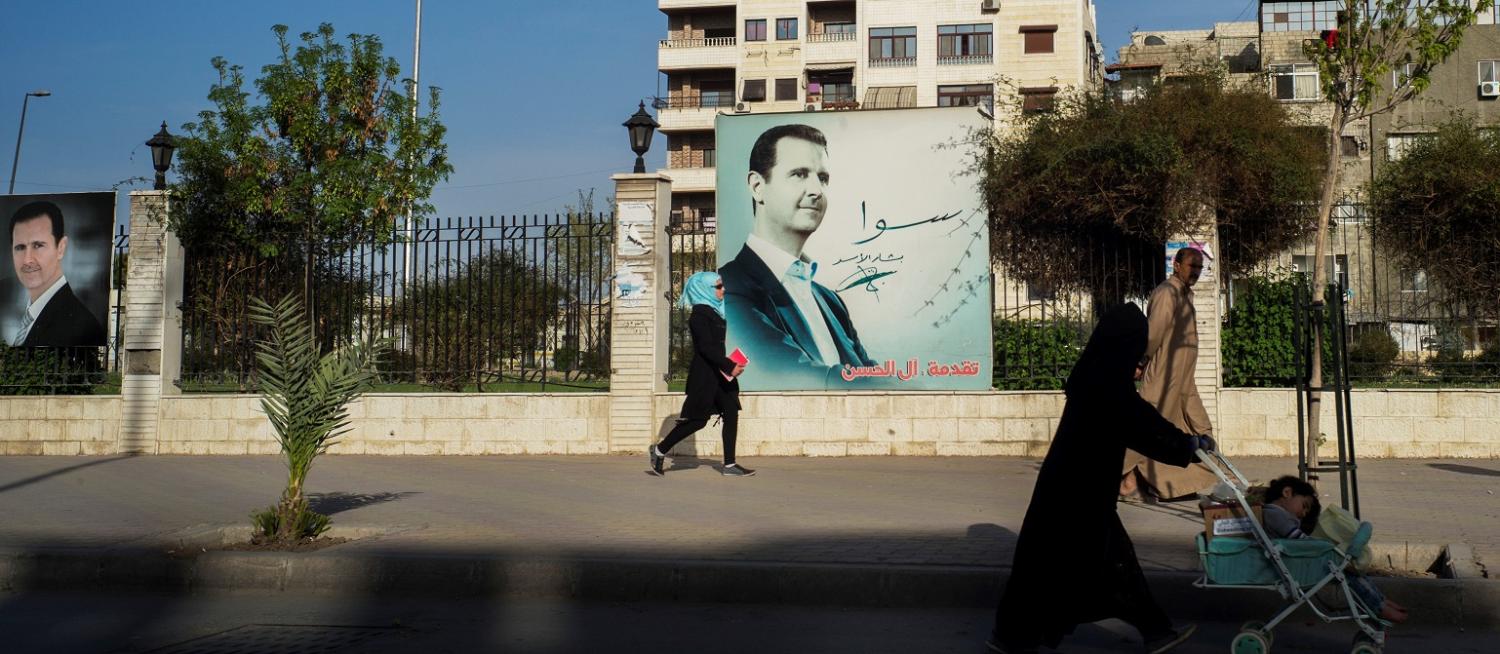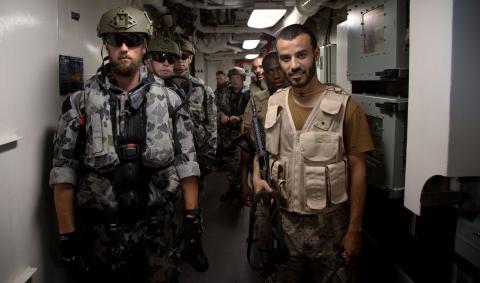While the intensity of violence in Syria may wind back in 2017, the transactional qualities and dilemmas of Middle East politics and diplomacy will be even more evident.
The Syrian government’s ruthless application of siege warfare against the rebel forces in East Aleppo is expected to see the government gain control over what remains of the city. The rebel uprising is unlikely to regain the military momentum it had in 2015 when it posed a serious risk to the survival of the Assad regime.
Islamist elements will probably remain entrenched in Idlib province and in pockets elsewhere, at least until the Syrian military acquires the capacity to operate effectively beyond the main cities. Government forces are unlikely to be able to clear and hold isolated rural areas in the foreseeable future.
The major urban centres of Syria, however, will remain under Assad’s control. Iranian support will continue to be the dominant military factor securing the regime. Russia will own Syria’s western air space.
There will be a mixture of interests-based accommodation and frictions between Ankara, Moscow and Tehran, complicated still further by matters of ideology, politics and deep-seated suspicions.
The Saudi/Gulf-US alignment, which at least has substantial interests-based, historical and institutional foundations in its favour, is also exposed to the uncertainties that will surround US approaches to Middle East policy after Obama leaves office.
One key element of Turkey’s approach for the past five years - the removal of Assad - is no longer on the cards. But Turkey will continue to do its utmost to prevent Kurdish forces achieving territorial contiguity along its border.
Turkey will contain its disputes with Moscow, partly because of the demonstrated economic consequences, but also because it doesn’t want Russia to impede its efforts to limit the Kurds. NATO and US concerns notwithstanding, Turkey will continue contact with the al-Qaida linked rebel forces that Erdogan’s government, and that of Qatar, have supported throughout the conflict.
Erdogan will pursue his vision of Turkey as the regional model for Islamist authoritarian government. And he will push back against European protests about his human rights record by threatening to place the refugee issue squarely upon the EU political agenda, including by re-opening Turkey’s borders.
Facing major economic challenges, but astute as always in reading regional dynamics, Egypt is pursuing a familiar, frustrating game of leverage against the Saudis while avoiding entanglement in Saudi follies in Yemen and Syria.
President Sisi is dallying with the Russians; drawing comfort from oil deals with Iraq and Azerbaijan (probably with Iranian assistance) and looking forward to presenting Egypt to the Trump Administration as a credible ally against terrorism. The incoming Administration will probably be amenable to arguments that authoritarianism represents an indispensable part of securing regional stability.
There will be scope for deal-making (and deal-breaking) as all sides hedge their bets and come to terms with these new regional realities. Much will depend on the measurements made of the personality and character of the incoming US President in his early encounters with Putin and Erdogan.
Iranian responses to the Trump Administration’s policies toward Iran will be a complex equation. Sophisticated, confident (especially after success in Syria) and tough-minded, they will make their estimates of the price Trump may be willing to pay for changing the US approach under Obama. But they will also study how capable the US may be in securing wider international support - including from the wider Arab world - for tougher stances where Iran is concerned.
Perhaps the greatest dilemma that will face the international community after the fall of Aleppo will be the question of how best to deal with the humanitarian and political consequences of the conflict going forward.
With almost 11% of the Syrian population killed or injured, and more than half the population displaced, the Syrian tragedy will continue to have social impact on the country and the region for generations.
While some more may arrive in Western Europe, and tens of thousands of Syrians may eventually resettle in the Persian Gulf states, in effect the political limits of Syrian refugee resettlement beyond the region have already been reached.
The Syrian refugee crisis cannot be addressed without establishing the conditions under which the overwhelming majority of those who have left or been displaced are both willing and able to return.
Within the next few years, not only the human costs of the conflict but its economic and social costs for regional countries; the domestic political effects on European countries; and its exacerbation of the strains on the institutions of the EU itself are going to become issues of real global consequence.
Credible estimates of rebuilding the Syrian economy to its 2010 level put the cost at more than $200 billion. But such rebuilding would also require the re-establishment of rule of law, especially for protection of human and property rights. Rebuilding in Syria cannot begin without credible political authority to support investment and the replacement of lost infrastructure.
Even if channelled through multilateral institutions such as the World Bank, assistance for the rebuilding of Syria can only be delivered through the Syrian government.
With that in mind, the regaining of full control of Aleppo will set the scene for major policy debates within western capitals. For the next few years, at least, the domestic position of the Assad regime will be unassailable. Assad will be seen as responsible for pushing back and defeating the threat posed by forces supported by the Gulf Arab states that were anathema to the secular values and traditions of many Syrians, both Sunni and Alawite.
The battle for Syria (or its most valuable parts) is now effectively determined. There is little prospect of reconciliation between Damascus, Ankara, Riyadh and Doha. It would serve no western interests to leave Assad with no option but to look to Iran and Russia for ongoing support.
To leave the refugee issue to fester is potentially disastrous, both for the region itself and for what such neglect would communicate about western values. It would also do nothing to relieve Europe of the pressures imposed by growing numbers displaced, stateless persons on its borders.
Looking ahead, there may be no option but for western countries to begin to deal once again with the Assad regime. The policy issues involved are painful. But to be motionless under such circumstances is to be damned.
Photo by Lorenzo Tugnoli for The Washington Post via Getty Images

